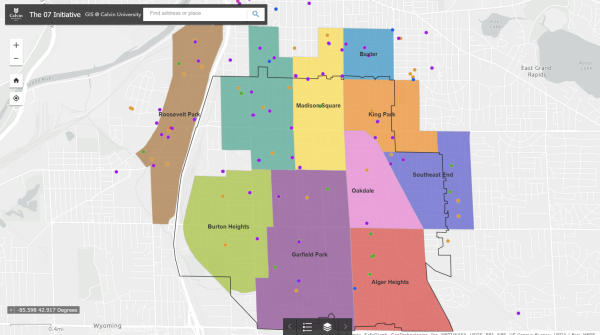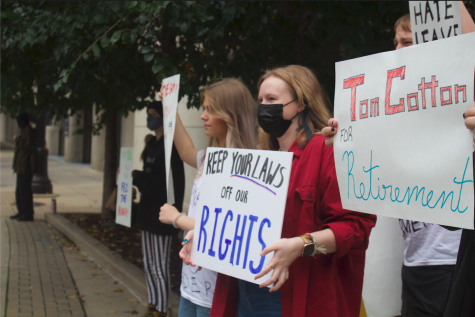Record-breaking Michigan winter destroys roads but leaves crops mostly unaffected
It may not surprise Michiganders to learn that this winter was one of the coldest ever recorded for the region, with the year’s average temperature showing a record-breaking drop from the historical average.
However, geology professor Gerry Van Kooten pointed out that this was a localized effect. “If you look at it on a global basis, Michigan was an anomaly,” said Van Kooten. “Most of the world was warmer.”
The western half of the United States actually experienced an unusually mild winter and regions of Mexico and Europe broke records for heat.
This was no consolation to Michiganders, who endured temperatures far below freezing combined with ever-accumulating snowfall. Residents of Grand Rapids experienced the city’s snowiest winter since 1952.
“I felt like I was drowning in snow,” said junior Caitlin Strikwerda.
The winter did more than just break records, however; it caused serious damage to roads. The constant cycles of freezing and thawing created gaping potholes up to six inches deep that riddled Michigan roads with driving hazards.
Some improvement is in sight. The Michigan Senate passed a $100 million bill to increase road maintenance in response to the brutal winter. Additionally, a Grand Rapids city vote on Tuesday increased income taxes to fund a large-scale initiative to improve the city’s roads and sidewalks over the next 15 years.
The harsh winter also affected some of Michigan’s plants and crops, according to biology professor David Dornbos, but not as dramatically as some might expect. On a positive note, he said that harmful non-native plants were not able to survive the cold.
“Invasive species we’ve had creep northward into Michigan, namely kudzu, will be pushed back south,” he explained.
The winter’s snowfall was actually beneficial for some of Michigan’s crops. Despite the extreme cold, the snow cover protected the seeds in the ground from damage that could have been caused by the low temperatures.
“The heavy snow layer provides an insulating blanket for winter crops,” said Dornbos. “Perennial plants like alfalfa didn’t feel the cold.”
Dornbos added that only a few crops would be affected by the cold, pointing out that the slow rate of the snow’s melting helped to “recharge the soil.”
“There may be some differences with cherries and blueberries,” said Dornbos. “Their buds are contained in the stems over winter — if temperatures get too cold, below the level the plants can protect themselves from, the buds freeze.”
Dornbos pointed out that warmer spring weather has arrived later this year than in the past, but he does not see it as a problem.
“Over the past 20 years, springs have been getting earlier in Michigan,” said Dornbos. “This spring is late, but it’s actually just a setback to normal.”
While many Michiganders have longed for spring’s arrival after braving the long chill, others remembered the winter more optimistically.
“Perhaps the high visibility and cost of this damage will spur some to better understand climate change,” mused Dan Slane, a specialist at CIT.
Junior Rian Bylsma was more direct: “So shoot me. I really liked the snow.”







